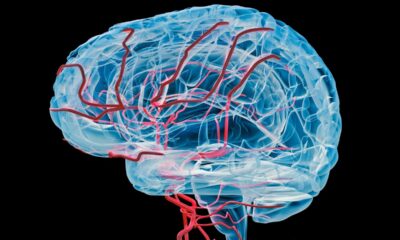Health
Driving Habits Reveal Early Signs of Dementia, Study Finds

Your driving habits may serve as an early warning signal for dementia, according to a recent study conducted by researchers at Washington University School of Medicine in St. Louis, Missouri. The research highlights how changes in driving behavior can indicate the onset of cognitive decline, particularly in individuals at risk of developing Alzheimer’s disease.
Study Overview and Key Findings
The study, published in the journal Neurology, involved 56 participants diagnosed with mild cognitive impairment (MCI) and 242 cognitively healthy individuals, all averaging around 75 years of age. All participants drove at least once a week at the beginning of the research, which spanned nearly three years.
Researchers utilized data from GPS trackers installed in the participants’ vehicles to monitor driving patterns. The findings revealed that individuals in the early stages of Alzheimer’s tend to drive less frequently, particularly at night, and prefer familiar routes over more varied ones. The study emphasized that these driving changes can be detected earlier than traditional cognitive tests.
“We found that using a GPS data tracking device, we could more accurately determine who had developed cognitive issues than looking at just factors such as age, cognitive test scores and whether they had a genetic risk factor related to Alzheimer’s disease,” said Professor Ganesh Babulal, the study’s lead author.
Driving Data as an Indicator of Cognitive Health
The research revealed a significant correlation between driving behaviors and cognitive health. Using driving data, the accuracy of detecting mild cognitive impairment improved to 87 percent when combined with age, genetic factors, and cognitive test scores. Without the driving factors, the accuracy dropped to just 76 percent.
Among the notable changes observed in participants with MCI were:
- A decrease in the amount of driving each month.
- A reduction in nighttime driving activities.
- A tendency to stick to familiar routes instead of exploring new ones.
By identifying these behavioral shifts, researchers aim to facilitate earlier interventions for at-risk drivers, potentially reducing accidents caused by cognitive decline.
“Early identification of older drivers who are at risk for accidents is a public health priority, but identifying people who are unsafe is challenging and time-consuming,” Professor Babulal explained. He added that monitoring daily driving behaviors is a low-burden and unobtrusive method to gauge cognitive abilities.
This study aligns with broader efforts in the scientific community to find early indicators of dementia. For instance, researchers from the Allen Institute for Brain Science in Seattle have noted that difficulties with navigation tools and spatial awareness may also signal early stages of cognitive decline.
In conclusion, the findings underscore the potential of using driving patterns as an effective tool for identifying cognitive changes associated with dementia. As public health initiatives continue to evolve, these insights could lead to improved strategies for supporting individuals at risk of cognitive decline, ultimately enhancing road safety for everyone.
-

 Entertainment3 months ago
Entertainment3 months agoAnn Ming Reflects on ITV’s ‘I Fought the Law’ Drama
-

 Entertainment4 months ago
Entertainment4 months agoKate Garraway Sells £2 Million Home Amid Financial Struggles
-

 Health3 months ago
Health3 months agoKatie Price Faces New Health Concerns After Cancer Symptoms Resurface
-

 Entertainment3 months ago
Entertainment3 months agoCoronation Street’s Carl Webster Faces Trouble with New Affairs
-

 Entertainment3 months ago
Entertainment3 months agoWhere is Tinder Swindler Simon Leviev? Latest Updates Revealed
-

 Entertainment4 months ago
Entertainment4 months agoMarkiplier Addresses AI Controversy During Livestream Response
-

 Science1 month ago
Science1 month agoBrian Cox Addresses Claims of Alien Probe in 3I/ATLAS Discovery
-

 Health4 months ago
Health4 months agoCarol Vorderman Reflects on Health Scare and Family Support
-

 World2 weeks ago
World2 weeks agoBailey Announces Heartbreaking Split from Rebecca After Reunion
-

 Entertainment4 months ago
Entertainment4 months agoKim Cattrall Posts Cryptic Message After HBO’s Sequel Cancellation
-

 Entertainment3 months ago
Entertainment3 months agoOlivia Attwood Opens Up About Fallout with Former Best Friend
-

 Entertainment2 weeks ago
Entertainment2 weeks agoCoronation Street Fans React as Todd Faces Heartbreaking Choice





















